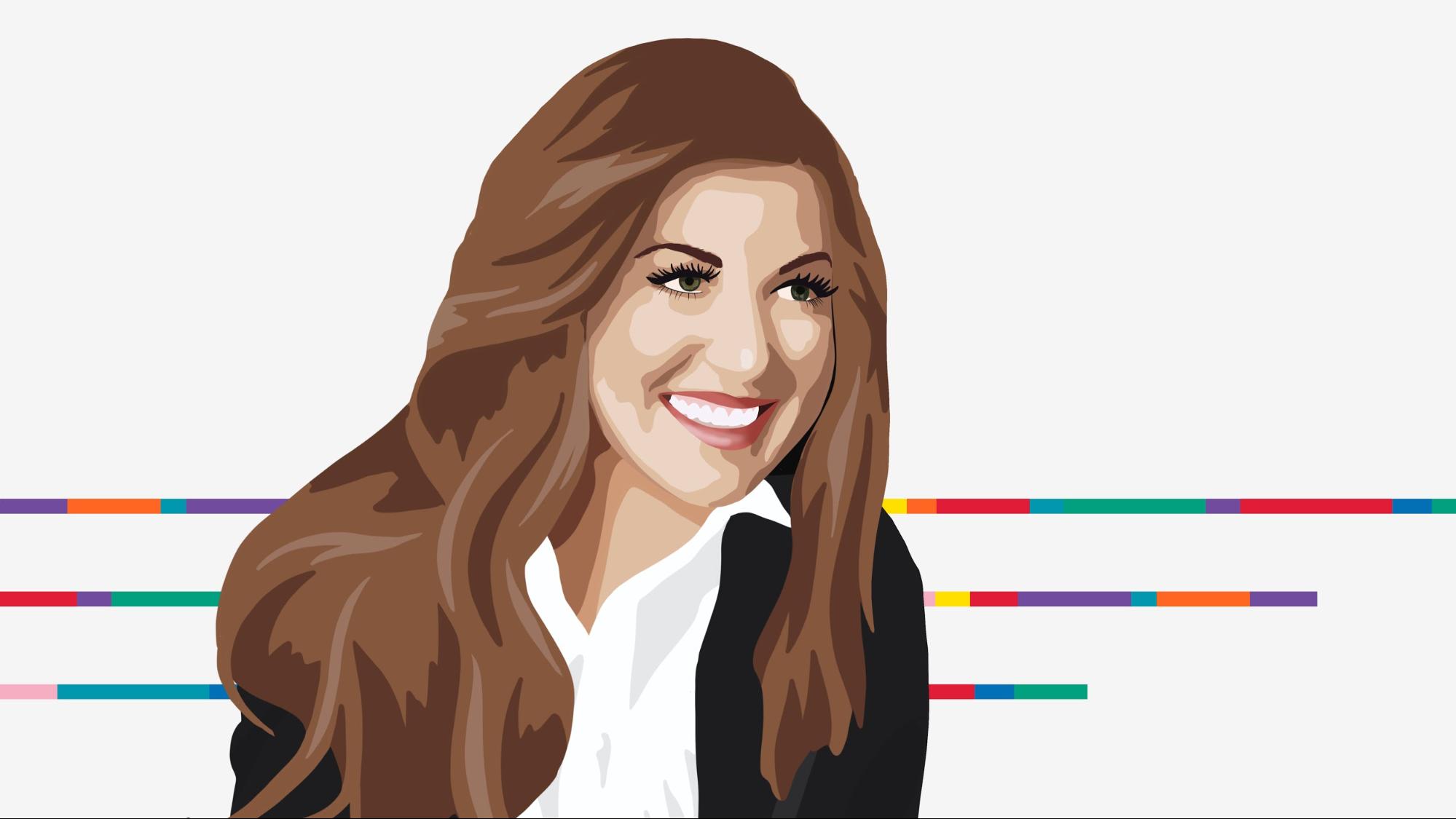She is not precisely a Kennedy or a Rockefeller, though Dylan Lauren may belong to another kind of American royalty.
Indeed, the daughter of the fashion icon Ralph Lauren was born into a special world, though you would be unwise to classify Dylan Lauren as a mere legacy kid. She is an incredibly prominent entrepreneur in her own right, Duke educated, and the brains and muscle behind Dylan’s Candy Bar, the candy empire about to celebrate its 20th anniversary in business.
From her home in Bedford, New York, Dylan Lauren discusses the economics of flagship stores, learning to delegate as CEO, and the lessons from her father, who 20 years ago encouraged his daughter to make no timid entry into the marketplace. “When I took the first flagship,” she says, “he's like, ‘Go bigger. Don't do a little small mom-and-pop candy store. Make it big.’”
(This interview has been edited and condensed for clarity.)
Dylan, 2020 changed a lot of things for a lot of retail companies. What were the unique challenges to the candy business as you experienced them this year?
Lauren: We have stores in Hawaii. We have stores in California, and in New York City. So [it was a challenge] dealing with different regulations of different states, and then realizing that the consumer was getting nervous to shop in a public forum. We quickly had to adjust our mentality to making sure everyone felt safe.
We took every precaution we had to, which wasn't inexpensive and was time consuming above just running the business. But it was the most important thing to do. So [we added] things like glass to close off areas so that people don't touch or breathe on certain things. We put all our bulk candy—which is one of our biggest draws—into prepackaged bulk so that customers didn't have to actually touch a scoop to pick and mix it. We prepared it for them. That was huge, because that's a huge part of the customer’s favorite experience.
We also had to limit the amount of people coming in our stores. Our stores attract thousands of people, mostly tourists. Because there's less tourism, then there were families who wanted to come to our stores because they were sad or bored or wanted something sweet. But we had to limit how many people could.
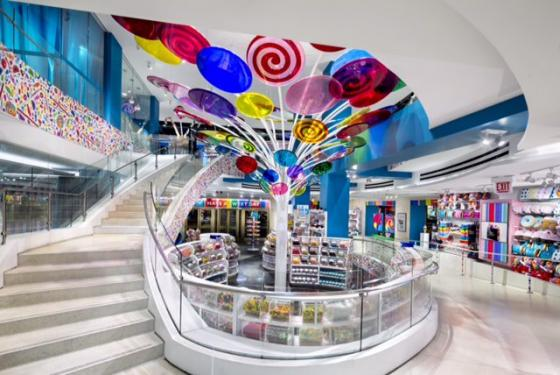
For those who haven't seen these things, your stores are designed to be fairly special places. If they are not precisely a Wonka factory come to life, they're about as close as you can get—huge colorful candy art displays, and these big, sweeping rows of bulk candy bins stretching floor to ceiling. Your stores are said to have done for candy what FAO Schwarz did for toys.
We can imagine a retail world that may one day return to how we used to know it, but do you think any of the changes you've had to make to your in-store operations might be here to stay for good?
Lauren: I think some of the changes are actually good, in that we're definitely much more conscientious about ensuring that everything is 1,000% sanitized and clean. Granted, we always were. We're just extra, extra, extra, extra cautious now.
But it is definitely a little sad to me, because I have always been by nature really passionate about retailtainment. The idea of Dylan's Candy Bar is really for the kids and the adults to come in, and come in with droves of your friends and family to celebrate. Now, people are very nervous. They want to get in and out, so we provide quicker service, which is something that will also be helping to speed up the exchange.
People are also going online a lot now. Some good positivity has come out of it. I'm certainly seeing a lot of new customers going online. I'm also seeing a lot of customers who I didn't even know the brand resonated with being like, "Are you open? Are you open? The store makes me so happy. Make sure you're open." So it's interesting to see who we've touched from both angles.
Dylan's Candy Bar is up over 20 retail locations, stretching now all over the U.S., into Canada, and even as far as Kuwait. Your stores are very prominent in the cities in which they live, and I'm sure your company has paid handsomely for its flagship store on Third Ave. in New York City.
Relative to your flagship, do all stores need to be significant drivers of profit in your view, or is it okay if you sacrifice a bit of profitability—maybe even take a loss at some locations—if it's good for the overall picture of how people see your brand?
Lauren: We opened in 2001. We're approaching our 20th anniversary, and so much has changed in every city we're in. Regardless of COVID, we've seen such a change in the customers and where they live, especially in cities like New York.
When we opened, we wanted to be in Midtown right by Bloomingdale's and all these movie theaters. By Barneys. By Serendipity, which is an iconic restaurant. Now, people don't even go to the movies. Barneys is no longer open. In every city we're in, we've seen a shift in the city itself.
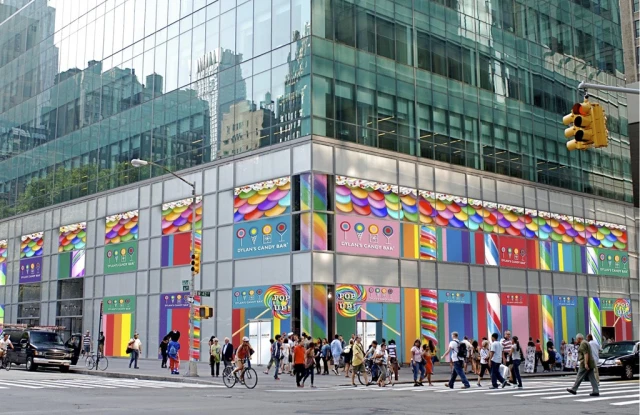
With our 20th anniversary, we're definitely looking into new locations. Our flagship in New York City—we may one day think that it's better to put it somewhere else, because my whole neighborhood is changing. I just want to be in the best area at the right time and provide more than just eating candy and a shopping experience. I do think the psychographics of the customer is really important.
I wanted to ask you about your leadership style in business. I dug up an old interview by your one-time creative director, a woman named Mayumi Ando. She said you were "available via BlackBerry 24/7," and that “nothing goes without her final approval." Are you still as hands on with a close eye on most things as you were, or can you share with us how you've settled on the right mix for you of doing versus delegating as CEO?
Lauren: For me, my name is on the door—Dylan's Candy Bar. I want to represent myself well. I am my customer. I love candy, I love fashion, I love colors, I love art—all of which is in Dylan's Candy Bar.
A lot of the involvement I have is just because it's my passion. I am very hands on. Yes, I've definitely delegated on some of the sides of the business that are not my strengths. I would say I'm more of a creative type. I'm passionate about colors and pantones, and candy and the buying side of it, and the marketing side and the charity side of our foundation. But when it comes to real estate, I definitely go with my gut in where I'm choosing locations. I just need people who understand the real estate deals to advise me.
Even on the financial side, I have a great team of advisors, and I have a chief financial officer. That's what I'm relying on, because I'm not looking at spreadsheets and numbers all day. I'm looking at spreadsheets of candy in every shade of turquoise, you know? (Laughs) But I have a gut feeling of what's going to sell, so I don't rely on just the numbers. That's why I am very passionate about being involved.
Can you describe what the unique pressures are like when you tie yourself so personally to the fortunes of your brand like that?
Lauren: When I called my store Dylan's Candy Bar, I knew that it was a unique name at the time for a girl. It was a cool name, synonymous with art—Bob Dylan, Dylan Thomas. So I like having that name on the door.
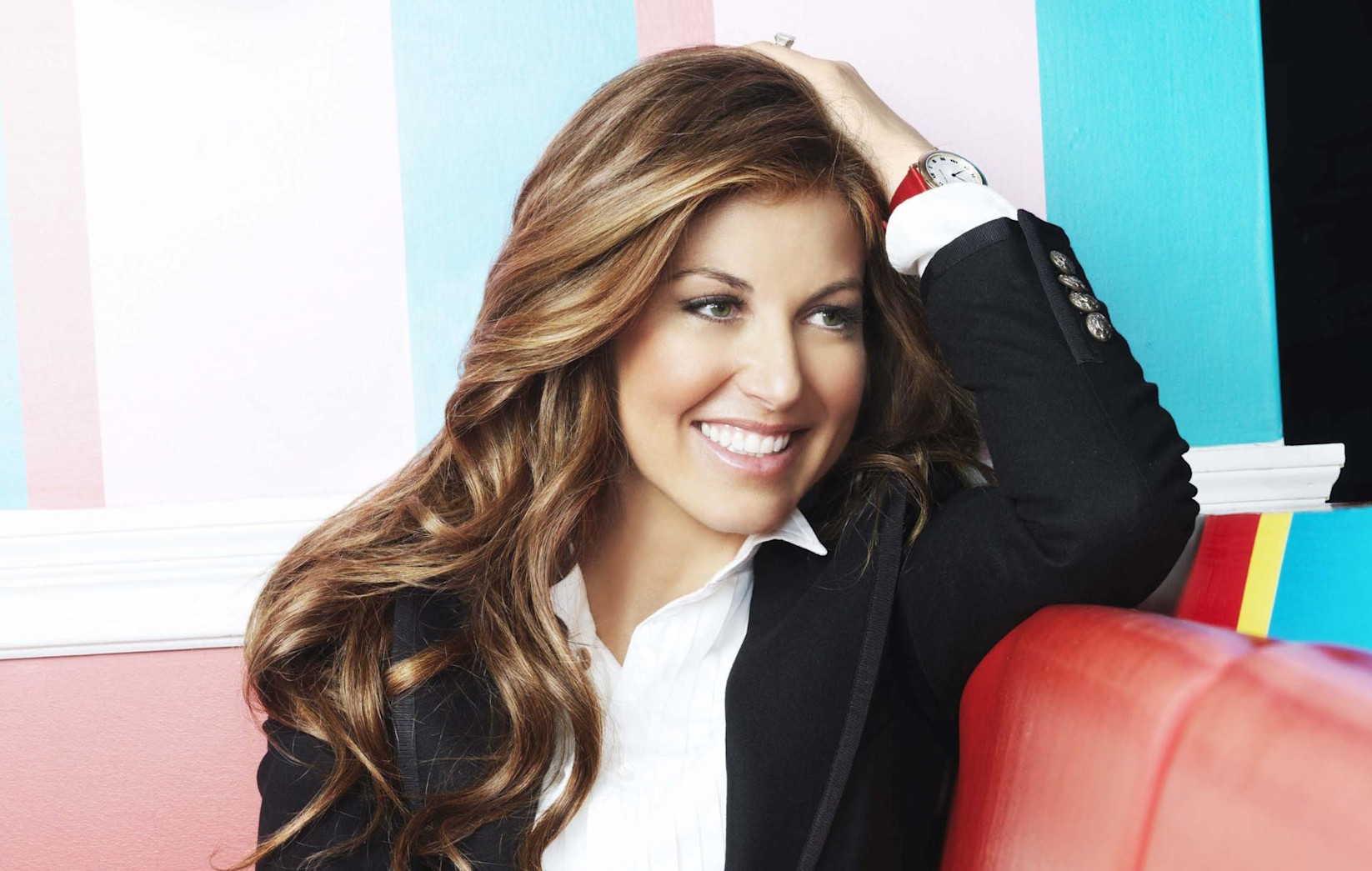
Also, I always felt like there's something nice about knowing an owner's name, like when you see “John's Pizza.” There's something homey about that. For candy and confections and ice cream, I felt that [knowing the owner’s name] was important.
I think because I am my customer, I feel like they know me—even if they don't. They're like, "Oh, that's Dylan." They see me in the store. They’ll see me doing an interview. They know I'm behind the product. It’s not just some random company.
Dylan, we've reached the part of the interview where I try to do the impossible, and that is to ask you questions about your father that you haven't been asked before. Are you ready to see if I can pull this off?
Lauren: (Laughs) Okay!
Your father, of course, is the fashion designer Ralph Lauren. When was the first time you realized, at least in the way the rest of the world saw him, that your dad was not like other dads?
Lauren: To me, he's always been my dad. He's very down to earth. I think probably where I did feel a little different was going to school and having sometimes security around me. Back in the '80s, I think there were threats of kidnapping people, especially in New York City. So I think that was one.
Or I would go to a certain camp when I was really into tennis and volleyball. People were like, "Oh, my God. Can I see your closet? Oh, my God. Your dad's Ralph Lauren. Can I touch you?" I was like, "What? This is so weird." It was a different place than I was used to, because I feel like a lot of other people just know me. They know my family and they know we're pretty normal people.
But it's great to have been able to learn so much from him. When we talk about business, we have a very similar artistic passion for what we do. We love colors. We're very upset if a style doesn't come out the way we envision it. My inspiration was definitely Willy Wonka and Disney movies. My dad took a lot of inspiration from classic movies. I think I learned that through him—how to create a lifestyle brand, even just with candy as he did with a tie.
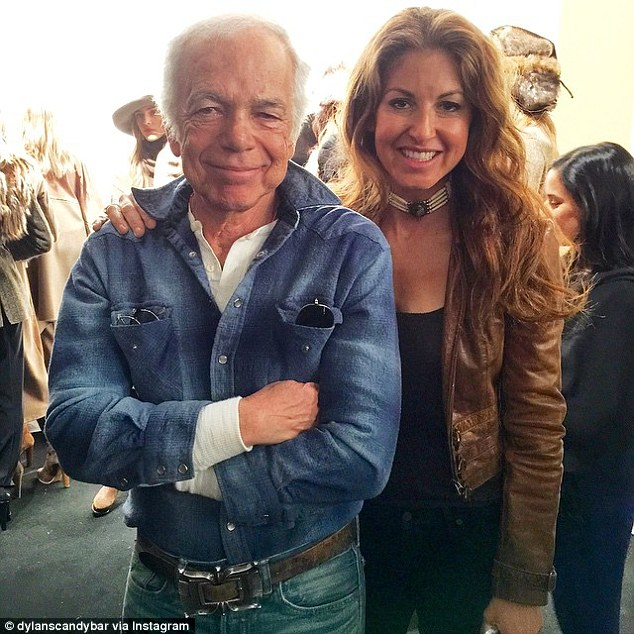
Who is the most impressive person you've encountered that you met through your father?
Lauren: My mother. (Laughs) Yeah, that's my answer.
There's this great story you've told that your dad wanted to name a fragrance after you when you were teenager, but you told him “no,” that in fact you needed to save the trademark for when you opened your own business one day. You obviously had the foresight—you knew what was coming. What do you think your father wanted for you in your professional life?
Lauren: My dad is a big fan of me doing candy because he understands it’s not just candy. It's something I love. It's art, it's fashion, it's pop culture.
He understood that it was Disneyland. In fact, when I took the first flagship, he's like, "Go bigger. Don't do a little mom-and-pop candy store. Make it big." I took like 15,000 square feet, which is a big risk, especially in New York City. But he really understood that right from the start, whereas a lot of other business people, I would say, did not understand my concept.
We teased it a little bit earlier, but 2021 marks 20 years in business for Dylan's Candy Bar. A two-parter here: What is the thing you are most proud that the company has done so far? And what drives you that there's still left to achieve?
Lauren: I'm proud that I would say the company is like a family. We've had employees since I started—who grew up as kids working in the store—still there. Or people have been with my company for 15 years, 17 years. Even people who I don't work with today, we're still close with. So, I'm proud that it's become not just a business like any business. We maintain our small-business vibe, which I think is important.
In the future, there are so many things I want to do with candy: design hotels, trucks, you name it. I think there could be so many interesting things, but again, the world is different. We're trying to figure out what's going to happen with retail.
I may move some of my flagships. We have to really be realistic about where the foot traffic patterns are. I mean, as I mentioned before, movie theaters—we had three around us. Today, I don't know if anyone goes to the movies. That was a huge draw for us. So, really, when I say location, location, location, I think I'm proud that I took the risk and opened my flagship in New York City.
I love the stores I have. I mean, I would love to open in Japan and London, but right now I can't even get on a plane!
